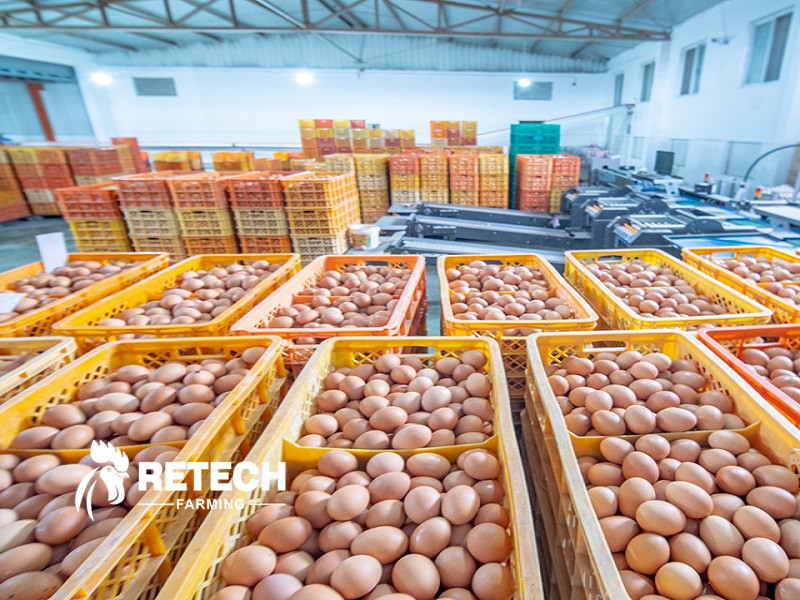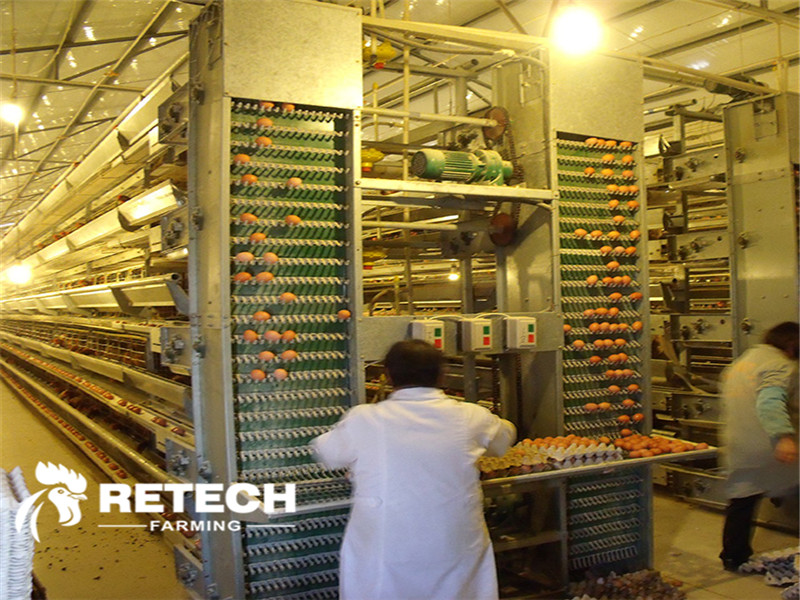一.Comprehensive measures to reduce egg breakage rates
In the process of egg farming
In addition to egg production rate, feed-to-egg ratio and other
egg breakage rate
egg breakage rate is also an important factor affecting
an important factor in farming efficiency
During production, chicken farms should always pay attention to the egg breakage situation
Assess whether the breakage is at a normal level
The lower the breakage rate, the better

egg laying hens
In general
less than 1% is normal
If it exceeds that level
you need to find the cause
Take appropriate measures to bring the flock back to normal
Reduce losses due to egg breakage
Comprehensive analysis of the reasons affecting the rate of egg breakage
There are mainly the following aspects.
1.Chicken breed reasons
Egg shell quality is highly heritable
There are certain differences between breeds or strains
Usually brown eggs are significantly better than white eggs in terms of shell thickness and hardness
are significantly better than those of white-shelled eggs
Therefore, before rearing
you should consider your own breeding facilities
Choose a suitable breed of egg
Some breeds are peckers
Beak breaking at 1 day of age is necessary
This can effectively reduce the number of broken eggs

layer cage
2.Feed nutrition factors
Lack of feed to produce synthetic
egg shells
inevitably leads to a decrease in eggshell quality
Several major nutrients include
calcium, phosphorus, manganese and vitamin D, etc.
Their appropriate levels of addition are:
- Calcium. The calcium content in the diet of laying hens is four times higher than that of reserve hens, and the calcium content should reach 3.7% in the early stage of egg production and increase to 4% in the late stage of egg production.
- Phosphorus. Phosphorus is also an important element for eggshell synthesis, usually 0.5-0.6% of total phosphorus in the diet is suitable for laying hens. A higher level of phosphorus in the early stage of egg production can prevent the occurrence of fatigue in caged hens; however, the phosphorus content in the diet decreases with the growth of chicken age, which is more conducive to the formation of high quality eggshells, and reducing the phosphorus content after 53 weeks can improve eggshell quality. (It is necessary to form a certain ratio with Ca content).

modern chicken cage
3.Vitamin D3 regulates the body’s absorption and metabolism of calcium and phosphorus, and providing sufficient vitamin D3 can increase eggshell thickness.
- The need for manganese is relatively low. 25 mg of manganese per kg of diet is appropriate for laying hens, and the quality of eggshells decreases when it is lower than 20 mg.
In addition
Adding 0.75% sodium aluminosilicate to the diet
can increase the density of eggshell by 1-4%
Increase the feed conversion rate by 2.2%
Under high temperature conditions
Supplementation of each kg of diet with
Vitamin C 50-100 mg
or adding 0.25% baking soda
Both can improve eggshell quality
Reduce breakage rate

Automatic egg collection system makes picking eggs easy!
二.the impact of feeding management
- Feeding density. The number of chickens in the battery cage directly affects the breakage of eggs. The crowding of chickens in the cage not only affects feeding and nutritional intake, but also increases the frequency of trampling by chickens, causing eggs to be trampled by chickens after output.
- Lighting. Reasonable light is the basis for chickens to produce qualified eggs. Generally, the light intensity of egg-laying chickens is 10-20 lux, and the light time is maintained at about 16 hours. For chickens with low body weight, 0.5 hours of light can be added at night, which can supplement the nutrition of chickens with inadequate feeding and help the formation of eggshells, improve eggshell quality and reduce broken and unshelled eggs.

chicken cage
- Stress. Stress can cause a sudden increase in the rate of egg breakage, especially heat stress in summer, which not only causes a decrease in chicken feed intake and an increase in thin-shelled eggs, but also a decrease in egg production rate. Therefore, to avoid or reduce the occurrence of various kinds of stress during the peak period of daily egg production of chickens, keep the chicken coop quiet and free of disturbance; chicken immunization should be carried out at the time of egg production; in summer, add vitamin C to the drinking water to reduce the degree of heat stress.
- Operation. Various operations such as egg collection, packaging,
- transportation, loading and unloading can also cause egg breakage. For example, gentle movements and no less than 2 times a day when collecting eggs, especially for automatic egg collection equipment, and careful operation during various operations can reduce the number of broken eggs.
- Management of equipment. Pay attention to the operation of the feeding equipment during feeding, disinfection and flock inspection every day, especially the cages and egg nets, to ensure that they are intact and repaired in time if they are broken or deformed.
- The age of the chickens. As the age of the flock increases, the egg weight gradually increases and the strength of the eggshell gradually decreases, resulting in increased breakage.

chicken cage


